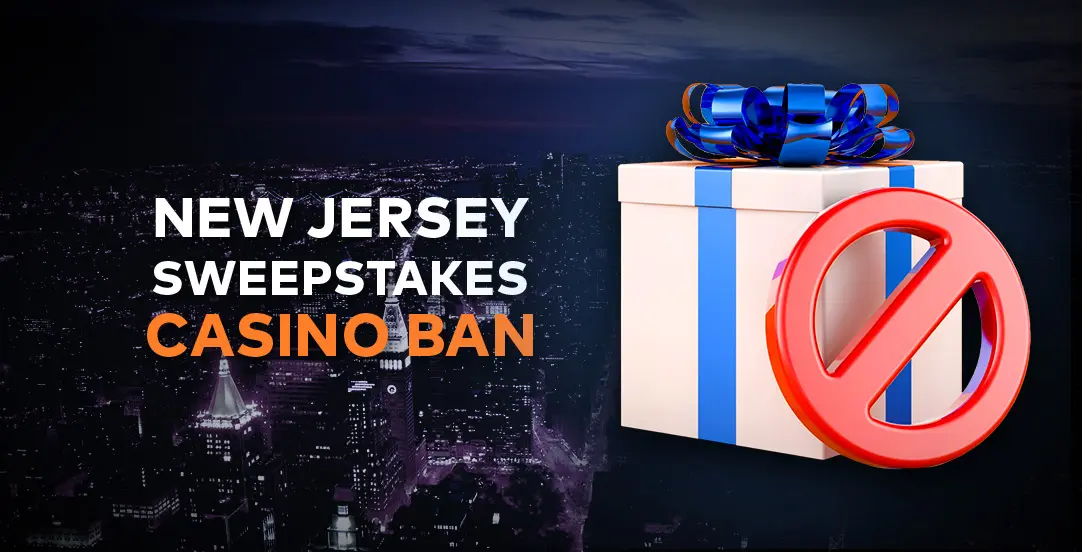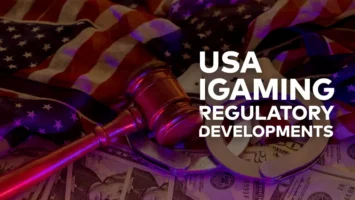New Jersey sweepstakes ban

On August 15, 2025, New Jersey Governor Phil Murphy signed Assembly Bill A5447 into law, implementing an immediate and comprehensive ban on sweepstakes gaming. The legislation, which defines and outlaws the “sweepstakes model of wagering,” closed a popular but controversial loophole. These sites allowed customers to enjoy casino-style games tied to virtual currency purchases or promotional entries rather than traditional cash bets.
Supporters of the ban argue that sweepstakes-based operators exploited a grey area, offering real-money-like gaming without abiding by the strict controls of licensed casinos. The new law goes as far as to clarify and expand what counts as illegal gambling, also introducing severe penalties for violators, with fines up to $250,000 and increased enforcement authority for state regulators.
Industry pushback and questions of consumer choice
Not everyone is applauding New Jersey’s stance. The Social Gaming Leadership Alliance (SGLA), representing sweepstakes and social gaming operators, voiced strong opposition. Executive director Jeff Duncan labeled the law “draconian” and argued it fails to distinguish between sweepstakes and traditional gambling.
The SGLA’s primary concern is that such regulation curtails consumer choice and hinders digital entertainment innovation. Their argument is that social gaming, which often uses non-monetary currencies and is marketed as a promotional tool similarly used by various industries, is distinct from traditional cash gambling. There is also worry that the law could threaten jobs, deter investment, and actually push activity toward less regulated, potentially riskier markets.
Broader US regulatory trends
New Jersey’s move reflects a larger, national push to rein in grey-area gambling models. In just this past year, similar bans have passed in Connecticut, Montana, and Nevada (the latter granted regulatory, not outright prohibition powers), with New York and Louisiana also enacting measures to challenge sweepstakes casinos. Louisiana took a different enforcement route, issuing over 40 cease-and-desist letters rather than legislating a ban. Mississippi used a comparable administrative strategy.
Other states, such as Arkansas, Florida, and Maryland, unsuccessfully attempted to pass bans, while California’s bill is still pending. Proponents of these measures point to the growing convergence between sweepstakes casino experiences and traditional gambling, particularly as dual-currency models make the barrier between the two increasingly thin. According to American Gaming Association research, a majority of sweepstakes casino players view their play as tantamount to gambling, with 68% motivated primarily by the chance to win real money.
Revenue keeps rising amid regulatory shakeup
Despite the regulatory storm surrounding sweepstakes, New Jersey’s gambling market as a whole is thriving. According to the New Jersey Division of Gaming Enforcement, total gambling revenue in July 2025 soared to $606.2 million, an increase of 10.7% compared with the previous year. The driver behind this growth is clear: iGaming.
The iGaming sector (including online slots, table games, and internet poker) generated $247.3 million in July alone, a stunning 26.6% leap. Casino games, especially slots, led the charge, and even internet poker saw a modest uptick. Top operators reaped substantial gains: FanDuel and Golden Nugget took in $52.1 million, DraftKings and Resorts World grew to $48.6 million, while BetMGM, Borgata, Caesars Palace, and Tropicana all saw double-digit percentage surges.
Comparatively, land-based casino revenue climbed to $284.1 million, up 4.3%. Slot revenue was up 2.7% and table game revenue rose by 9.7%, showing that traditional gaming still has strong footing. However, it is iGaming’s rapid expansion that is narrowing the gap, challenging the dominance of brick-and-mortar revenue streams.
Sports betting falters but does not slow overall market momentum
In contrast to iGaming’s rise, sports betting had a tougher July. Revenue dropped by 6.6% year-on-year to $74.8 million, with online revenue slipping and retail sportsbooks posting a net loss. Some operators, including FanDuel and DraftKings, saw double-digit declines in their sports betting revenue, while newcomers and select brands (such as BetFanatics and Bally’s) achieved substantial gains. Notably, losses in retail sports books were not enough to offset the robust gains posted online and from other segments.
Overall, for the year to date, New Jersey hit $3.92 billion in total gambling revenue as of the end of July, up 8.8%. iGaming was again a standout with 23.3% growth. By comparison, sports betting contracted by 4% over the same period. The changes highlight not only shifting consumer preferences but also the complex interplay between regulatory environment and revenue opportunities.
Implications for operators and the wider iGaming sector
The immediate ban on sweepstakes casinos triggered rapid shifts. For instance, VGW, a leading sweepstakes operator, withdrew its Chumba Casino and Luckyland Casino brands from New Jersey ahead of the law’s enactment. Industry advocates warn that such abrupt restriction may inadvertently push liquidity and player activity toward unlicensed markets or alternative jurisdictions.
The new law also expands prohibitions to include proxy betting, using another person’s account for wagering, event manipulation, and targeting unlicensed “online gambling resorts.” First offenses can fetch fines up to $100,000, escalating to $250,000 for repeat violators. Regulators now have explicit authority to pursue injunctive relief and shut down illegal sites quickly.
At the same time, Murphy also signed a tax hike for online casino and sports betting (now at 19.75%), a move intended to raise state revenue without resorting to the much steeper 25% previously debated.
The crossroads of innovation and oversight
As New Jersey solidifies its status as a regulatory trendsetter, the lines between regulation, innovation, and market growth are being redrawn. The state’s aggressive stance on sweepstakes gambling could become a model for others but also comes with risks: stifling new business models, potentially reducing consumer choice, and steering players to less transparent spaces.
Yet for now, New Jersey’s established iGaming and casino sectors remain in robust health, demonstrating that meticulous, if sometimes controversial, regulation can coexist with industry growth. The ultimate balance between nurturing innovation, protecting consumers, and supporting economic development remains a central challenge for stakeholders and lawmakers alike.
The future of gambling in New Jersey and beyond
Looking ahead, New Jersey’s approach signals a sharpening national focus on drawing clearer boundaries for what constitutes legal and safe online gambling. As states across the US watch the Garden State’s results, one thing is certain: the interplay between regulation and market momentum will define the next era of gambling, a story that continues to unfold.





















